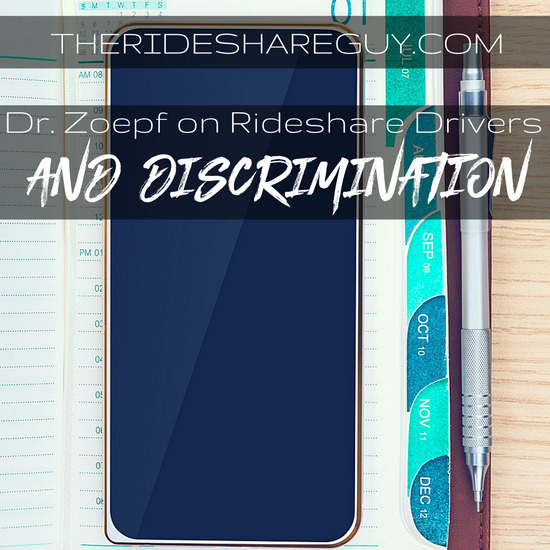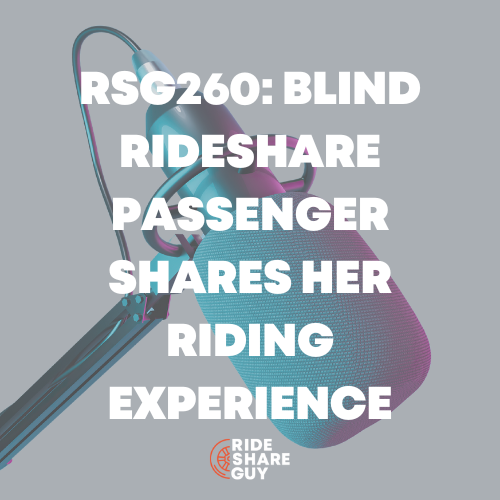Discrimination among transportation services has always been a tough problem to solve. Many thought that the emergence of rideshare services like Uber and Lyft would solve some of these issues but a new study has brought to light that some of the same discriminatory practices taxi drivers have been accused of over the years are also happening on rideshare services.
I know many drivers have always felt that the ratings system could be racially biased and although this study focuses more on passenger discrimination, future studies could potentially show the same thing on the driver’s side of the equation.
If you’d like to read a transcript of this podcast, please click here.
Intro
- Today we’ll be talking with Dr. Stephen Zoepf about his study on rideshare drivers and passenger discrimination
- We’re pretty familiar with occasionally getting cancellations as drivers and passengers, but Dr. Zoepf’s study goes into more depth about why and how this happens
- Stay tuned to the end, where we discuss what can be done to fix discrimination
- Thank you to everyone who’s given the RSG podcast 5 stars on iTunes!
- Check out driving for DoorDash – looking to get away from drunk pax? Sign up for DoorDash!
- Missed an episode of one of our podcasts? Click here
An Interview With Dr. Stephen Zoepf
- Dr. Stephen Zoepf, Executive Director of the Center for Automotive Research at Stanford
- Focused on studying the future of human-centered mobility
Study: Discrimination Persists in Peer Transportation Systems
- Study took place in Seattle and Boston
- In some cases, passengers either black or white, male or female. In Boston, the study hired students who appearance would allow them to travel as either race
- People who were black had longer wait times and were cancelled on more
- Quirk that Uber doesn’t show people’s names or pictures until after a ride is accepted, while Lyft shows drivers names and pictures immediately. This means Lyft drivers can decline a ride, whereas Uber drives actually have to accept and then cancel
- For that reason, can’t draw definitive conclusions for Lyft
- Were hoping to find no evidence of racial discrimination, but unfortunately that’s not what happened
Takeaways from Study
- Uber, Lyft, and Flywheel not discriminatory companies
- They are platforms for the reflection of society – subconscious
- Drivers not evil either, but some are making bad decisions
- Goal for TNCs should be to develop policies that try to encourage their drivers to behave in a way that doesn’t encourage or permit discrimination
- Also up to local, state, national level to create policies that address this type of discrimination
Response to Study
- Has not heard from Uber about the study results, but open to working with them in the future
- In the media, mentions of how types of discrimination are being addressed, but nothing substantive
- Did not research passenger vs. driver discrimination, but it’s something to consider in the future
Future Projects
- Will continue to study rideshare and rideshare companies
- Searching for answers to questions about how new transportation modes affect society
Outro
- While we might not like to hear about the results of this study, it’s something we as drivers have to keep in mind: our subconscious biases
- Maybe regulators do need to have more of a say – what do you think?
- Want to learn more about Dr. Zoepf’s research? Check out cars.stanford.edu
- The study conducted in Seattle and Boston can be found here
- Follow Dr. Zoepf on Twitter here
- Feel free to reach out to me at harry[at]therideshareguy.com or follow me on Twitter @TheRideShareGuy
- Leave comments, questions and feedback below!
If you’d like to read a transcript of this podcast, please click here.
Drivers, what do you think about the results of this study and what can be done to fix potential discrimination issues?
-Harry @ RSG






